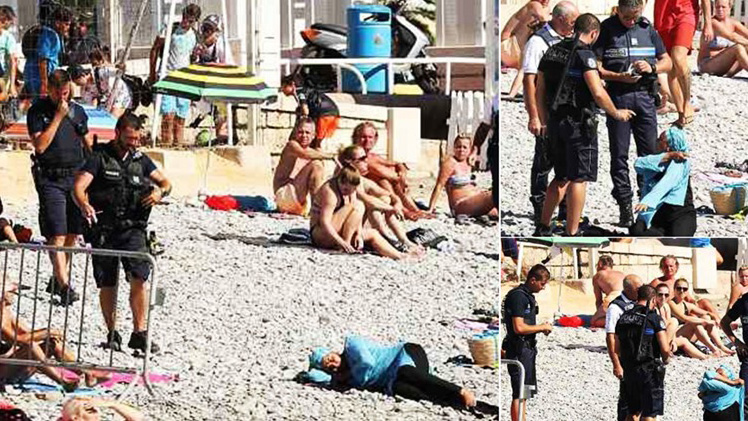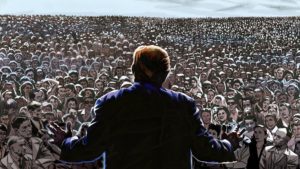Post-Colonial States
Jan 5th, 2018 by amcadams
PART IV
This section of our course is devoted to the dilemmas of building Nation-states in the Post-colonial World.
One of the challenges of this part of the course is that it is so difficult to nail down that portion of the world that is not “liberal” (what we used to call the First World) or “Leninist” (old Second World). There is a good reason why this is so. What we often refer to as the “developing world” or the “Third World” is a vast array of different types of countries and civilizations. On the one hand, Americans tend to ignore the fact that there are highly developed states outside of the western world, such as Brazil (just consider the North’s disparagement of this advanced country’s Olympics: READ). On the other hand, there are fantastically poor states, such as Chad and Sudan. In this sense, there is not unified entity we can call the Third World.
My solution to this challenge is to focus on a specific category of states that have at least one thing in common: the experience of having been colonies of European powers. This approach has a distinctive benefit. Many of the major crises in the world today are the result of European colonialism, including Iraq, Syria, and Afghanistan.
the experience of having been colonies of European powers. This approach has a distinctive benefit. Many of the major crises in the world today are the result of European colonialism, including Iraq, Syria, and Afghanistan.
27. LECTURE: Monday, March 26
Initial reflections on the contradictions between two ideal types: tradition and modernity.
Today’s Assumption: People in the West frequently denigrate the inhabitants of more traditional cultures. Yet, the norms and institutions of traditional society are as rational as those of modern society.
A good example of liberal democracy’s problem with the expression of traditional ways of acting is the French practice of Laicité
Angelique Chrisafis, “France’s Headscarf Rule,” The Guardian,” July 2013 PRINT AND READ
Yet despite the West’s assumption that its societies are governed purely by formal rules of order, supposedly traditional practices, like political corruption, play an undeniable part in liberal-democratic societies, too. See Glen Thrush, “If I’m corrupt, it’s because I take care of my district” READ
FILM: Monday, March 26 (DBT216) and Tuesday, March 27 (DBT140): 7:00 p.m.
Film #3 (Evening): “Mr. Johnson” READ
28. LECTURE: Wednesday, March 28
Reflections on the brutal and paradoxical consequences of colonial empires.
Today’s Assumption: In this lecture, I will focus on colonialism’s role as an external instrument of change. Whether we are talking about the realization of Napoleon’s imperial ambitions in Europe or Europe’s colonization of most of Africa and Asia one century later, many fundamental changes in political identity are introduced from outside. Even after these colonial powers leave, their impact will be felt for decades and perhaps even centuries thereafter. For example, contemporary conflicts in the Middle East are directly related to the experience of colonization.
Assignment: As you read the following essays, ask yourself whether and in what way the politics of Iraq, Afghanistan, Syria, and Pakistan would have been different without the intrusion of western powers, such as Great Britain and France.

Sykes-Picot line (1916): Creating states at whim
Would they be stable states today? Or, in view of their fractured histories, is this question nonsensical? Are they currently nation-states? If not, can they be transformed into viable nation-states today?
Rudyard Kipling: “The White Man’s Burden” PRINT AND READ
Is this poem an example of satire or imperial pride?
S. V. R. Nasr, “European Colonialism and the Emergence of Modern Muslim States” PRINT AND READ
Robin Wright, “How the Curse of Sykes-Picot still haunts the Middle East,” The New Yorker, April 30, 2016 PRINT AND READ
Your second reflective essay will be due on this date, Wednesday, March 28
29. DISCUSSION SECTION: There will be no TA sections on Friday March 30 due to Easter Break
EASTER BREAK: March 29 – April 2
30. LECTURE: Wednesday, April 4
Reflections on the sensible logic of peasant society.
Today’s Assumption: There are more peasants in the world than any other social group. The organization of peasant societies makes more sense than we might imagine. It relies upon a conception of reality known as the “limited good.” The “limited good” is neither good nor bad. It is simple one way of looking at the world.
Assignment: Read George Foster’s seminal article and the newspaper piece below and ask yourself what the advantages and disadvantages of peasant society would be.
George Foster: “Peasant society and the image of the limited good” PRINT AND READ
E. P. Thompson, “The Moral Economy of the English Crowd in the Eighteenth Century” READ
Sara Sidner, “Brothers share wife to secure family land” READ
On the rational logic behind primogeniture: READ
Then, read about the massive migration of peasants from the land into the cities, a quintessential example of the conflict between traditional and modern societies.
Eugene Linden, “The exploding cities of the developing world,” Jan-Feb;75(1), 1996: 52-65. Search through JSTOR and PRINT and READ
31. DISCUSSION SECTION: Friday, April 6
For this discussion section, you should read at least the first half of Carolina Maria de Jesus, Child of the Dark. De Jesus’s story is painfully revealing. As you read it, try to imagine what you could have if you were in her shoes. Keep in mind that Carolina Maria was a living, breathing human being, just like you; she had nothing–often not even food in her stomach–and she somehow managed to write this incredible diary.
Carolina Maria de Jesus, Child of the Dark.Discussion theme: What does it mean to be poor?
Assignment: The poor are more capable of recognizing “the world as it really is” (i.e., the truth) than we are. What can this statement possibly mean?
32. LECTURE: Monday, April 9
Reflections on a global problem—poverty—and its implications for life, society, and politics.
Today’s Assumption: Being poor is a way of life for most people in the world. No student at the University of Notre Dame should be indifferent to the plight of the poor, especially while living on one of the most conspicuously affluent campuses in the world! In addition, poverty is not only a problem for other peoples. It is a problem for American society as well because it is deeply embedded in our society, indeed much more than in any other modern industrial democracy.
Assignment:
Carolina Maria de Jesus, Child of the Dark. Finish the book.
PBS News Hour, “Violence flares in Rio’s slums just months before summer Olympics,” May 31, 2016: WATCH and READ

The Rocinha favela in Rio de janeiro
Gapminder: Look HERE for some of some very cool sources of information. Gapminder is like an interactive game designed to take you through every piece of comparative data (e.g., literacy rates) that I will discuss today. For some of the countries, you can even manipulate it over time, going back hundreds of years. I could play around with this device all evening.
Jesse McKinley, “Cities deal with a surge in shanty towns” READ
33. LECTURE: Wednesday, April 11
Reflections on the different forms of authoritarian government: Big men with big guns, big appetites, and big mouths.
Today’s Assumption: Western policymakers frequently rationalize life under dictatorial regimes (e.g., Saudi Arabia) as a political necessity. But cozying up to dictators is risky. Can we confidently say that we are the best judges of necessity, especially when we are talking about the quality of other people’s lives? We sometimes forget or ignore the fact–tragically–that ordinary people must live under these regimes.
Assignment: As you read about these regimes, ask yourself these questions: 1) Why would people support them? 2) How can the autocrats live with themselves after doing terrible things to stay in power? and 3) What should we do with them after they are no longer in power?
Patricia Sellers, “What exactly is charisma?” READ
Steve Kolowich, “Why Oprah Could be President” READ
Lauren Collins, “The big man syndrome,” New Yorker, December 14, 2011 READ (both this short piece and the link to “Tram Lady”)
Lying to the poor: The Poverty Gospel READ AND PRINT
Disappearances and torture: “Argentina: Waves from the Past” and “Gallery of Argentinian Torturers and Killers”
34. DISCUSSION SECTION, April 13
Assignment: Interview with Leonardo Boff: PRINT AND READ
Paragraph Assignment. Based on your reading of the Boff interview, please respond to the following question: Can Notre Dame be a fully Catholic institution and not practice liberation theology? Be sure to address what it would mean to practice liberation theology.
